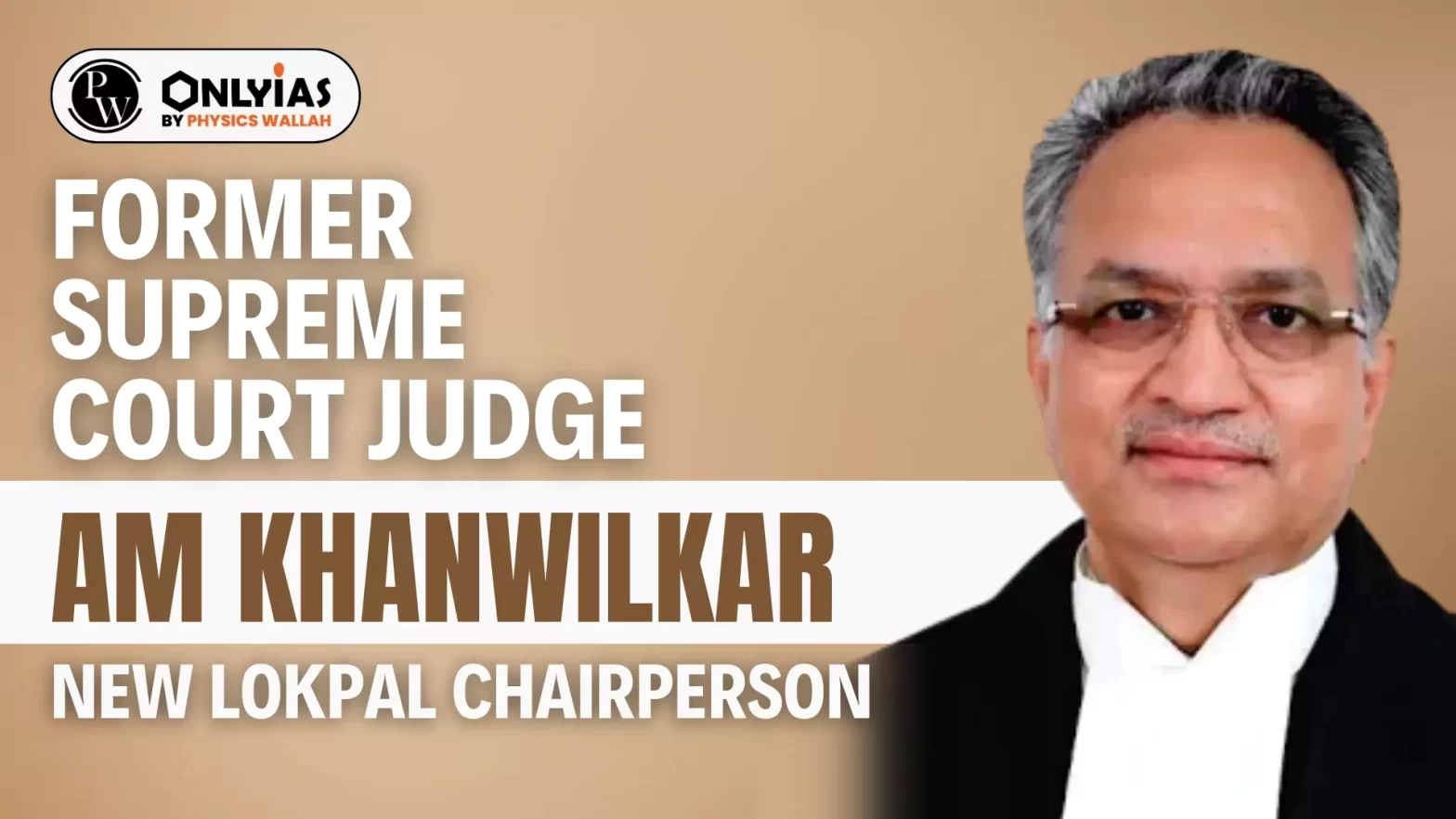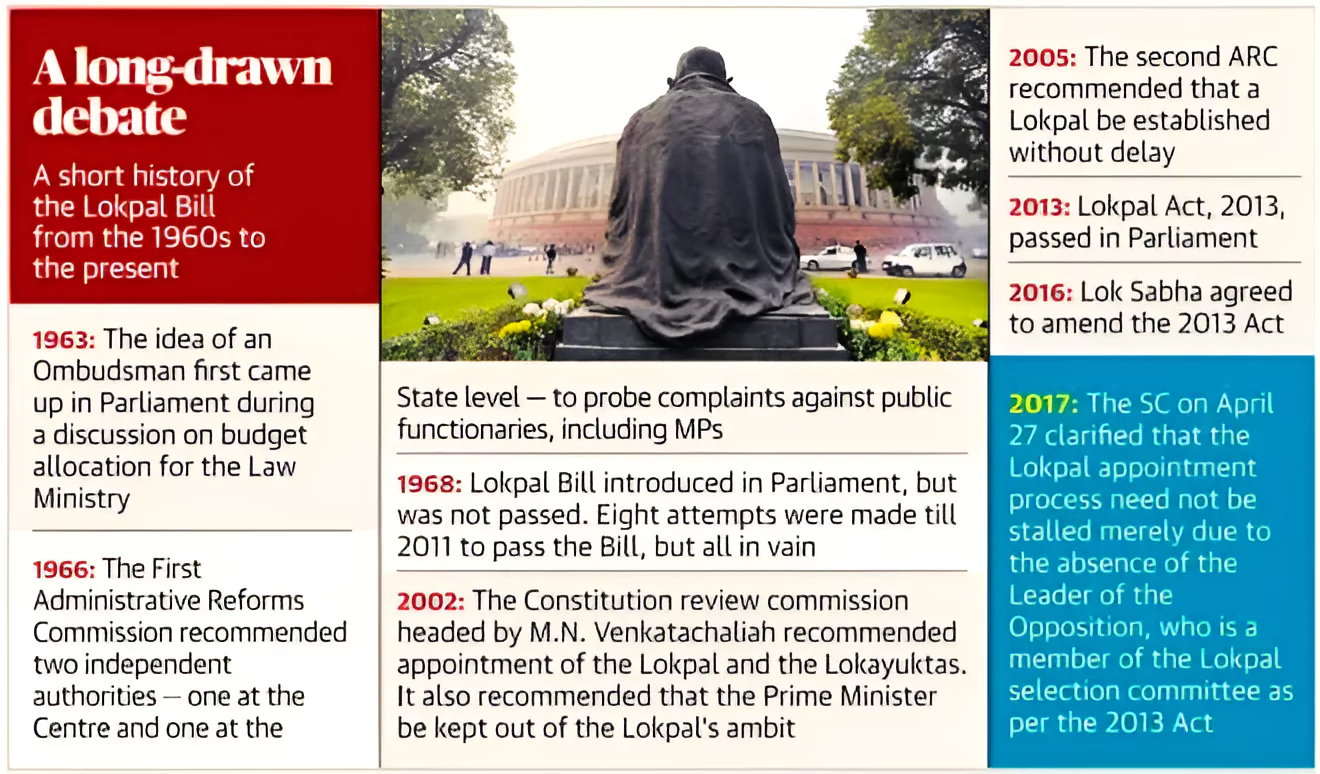![]() 28 Feb 2024
28 Feb 2024

This article is based on the news “Express View on government’s new grain storage plan: More in store” which was published in the Indian Express. Recently, the President of India appointed former Supreme Court Judge Justice AM Khanwilkar as the Chairperson of the Lokpal.
| Relevancy for Prelims: Lokpal And Lokayuktas In India, Corruption Perceptions Index 2023, Supreme Court, Money Laundering, and Enforcement Directorate (ED).
Relevancy for Mains: Lokpal: Compositions, Chairperson, Members, Appointments Procedure, Tenure, Mandate, Powers, Functions, Criticisms and Way Forward. |
|---|
Corruption: A Serious Concern
India is a signatory to the United Nations Convention against Corruption
|
|---|
First Lokpal Chairperson:
|
|---|
 In 2002: The Commission to Review the Working of the Constitution headed by M.N. Venkatachaliah recommended the appointment of the Lokpal and Lokayuktas, also recommended that the PM be kept out of the ambit of the authority.
In 2002: The Commission to Review the Working of the Constitution headed by M.N. Venkatachaliah recommended the appointment of the Lokpal and Lokayuktas, also recommended that the PM be kept out of the ambit of the authority.
About Lokayukta
|
|---|
About Lokpal Search Committee:
|
|---|
| Prelims PYQ (2018):
Consider the following statements: 1. In the first Lok Sabha, the single largest party in the opposition was the SwatantraParty 2. In the Lok Sabha, a “Leader of the Opposition” was recognised for the first time in 1969. 3. In the Lok Sabha, if a party does not have a minimum of 75 members, its leader cannot be recognised as the Leader of the Opposition. Which of the statements given above is/are correct? (a) 1 and 3 only (b) 2 only (c) 2 and 3 only (d) 1, 2 and 3 Ans: (b) |
|---|
| Mains Question: A national Lokpal, however strong it may be, cannot resolve the problems of immorality in public affairs’. Discuss. (200 words, 10 marks) |
|---|
| Must Read | |
| NCERT Notes For UPSC | UPSC Daily Current Affairs |
| UPSC Blogs | UPSC Daily Editorials |
| Daily Current Affairs Quiz | Daily Main Answer Writing |
| UPSC Mains Previous Year Papers | UPSC Test Series 2024 |
<div class="new-fform">
</div>